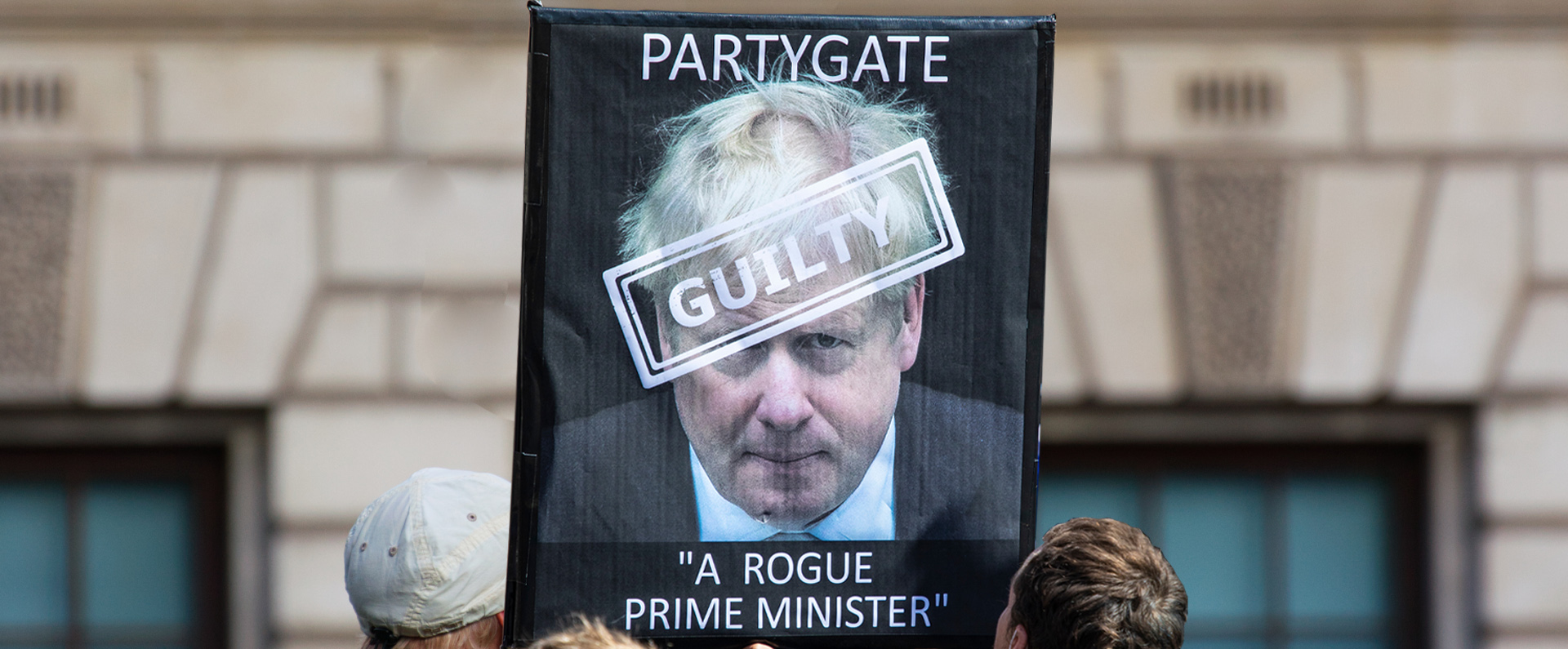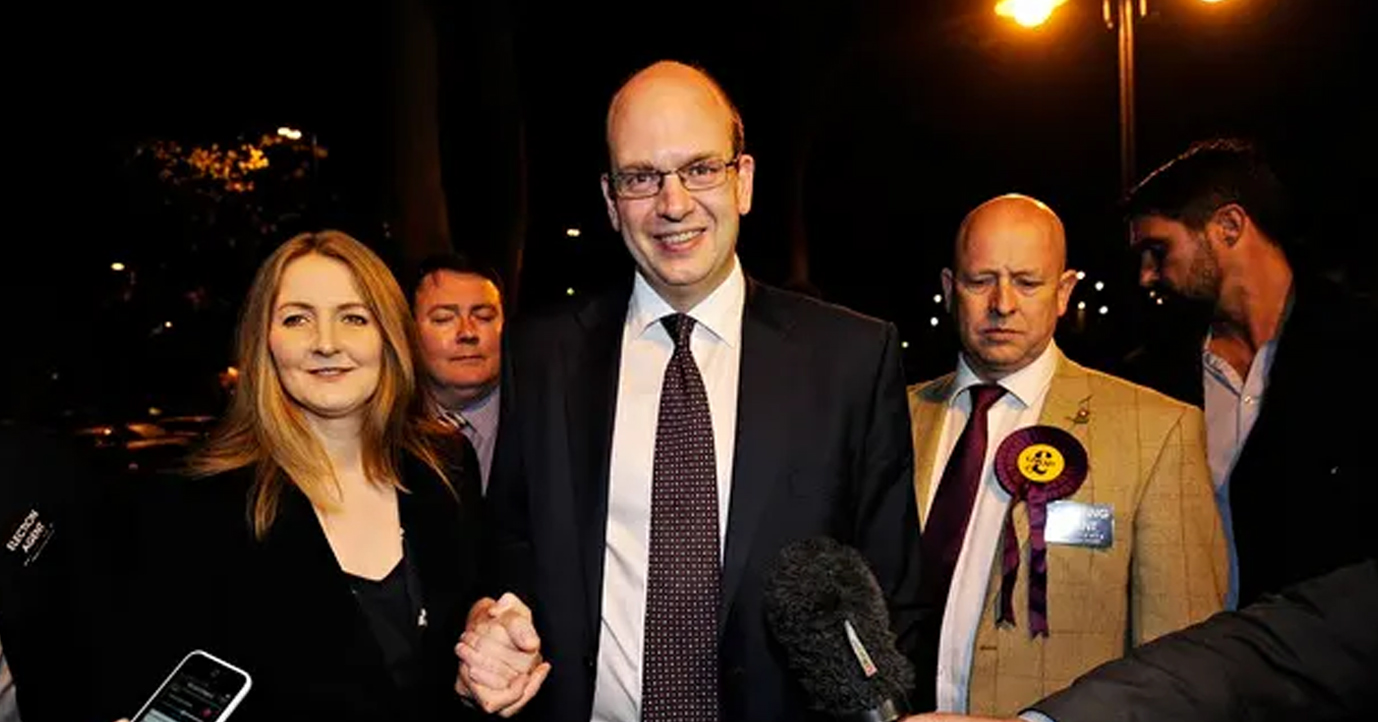
By-elections are hardly ever convenient for a government, but next week’s contests in marginal Wakefield and supposedly safe Tiverton & Honiton are especially inopportune. The events that precipitated each of them have hardly helped, judging from my focus groups of 2019 Conservatives in both constituencies this week.
“It’s a bit more serious than partygate, isn’t it,” as a man in the West Yorkshire seat put it. “OK, he was found guilty but the thing that got me was that part of the Tory party was told before he was elected. They knew beforehand but stood by him.” Not everyone agreed (“it was an individual – people like that can get into everywhere”) but there was no doubt the former MP Imran Khan’s offence had “tarnished things.”
In Devon, some were sorry to see the demise of Neil Parish. “Being a farmer, I think it’s a shame. He was a farmer himself and he was a good advocate for us.” Even so, he had to go. “There’s a combine called the Dominator, so I can see that, but he did do it a second time. He’s done the right thing and resigned. It’s what it was, silly boy, and it’s a shame because he was a good MP.” Some of the women took a different view. “I thought he was a right numpty before that,” said one, “so it wasn’t a surprise. I just thought, you are such an idiot.” Even so, “I think it might not have been a bad thing for the Conservatives because the new lady, Helen, seems really good. She was a teacher. She knocked on my door yesterday. There was something refreshing about her. She wasn’t a middle-aged man, she didn’t embody the typical Conservative MP, so that’s swaying me towards her.”
“If his face comes through my letterbox again…”
Participants in both constituencies had been deluged with literature (“I had nine from the Lib Dems last week, all the same person, Richard Ford. If his face comes through my letterbox again… My dog doesn’t eat the post but now I wish he did”). But despite the circumstances and the frantic local campaigns, national issues would dominate most people’s decisions – not least their view of the prime minister.
There was no appetite for another confidence vote, which many would see as a distraction from real priorities (“it’s over and done with, they need to forget about this and focus their time on things that matter and moving forward”). At the same time – there being no constitutional requirement for voters to be consistent – some in both places said they could not vote Conservative again while Boris Johnson was in charge. “He stood up in the House of Commons and said, ‘I have been informed that no rules were broken at the parties I didn’t go to’. Then you find out that he was at them, which was a blatant lie to everyone in the country. I can’t trust a single word that comes out of Boris’s mouth from now on.” You trusted every word before? “No, but I could trust a percentage of them. Now it’s zero trust.”
“The fact that he can’t even brush his hair in the morning has really started to grate on me.”
Some said that, for them, the revelations had tipped the balance against him: “He’s a character, a bit of a geezer in an Eton sort of way, but there’s a fulcrum isn’t there? And I think he’s slightly tipped that fulcrum now. He’s gone from being the loveable rogue to being someone who’s lost credibility;” “The fact that he can’t even brush his hair in the morning has really started to grate on me.”
Yet evidence of partygate fatigue was abundant, especially in Devon: “I think with what’s going on around the world, there’s a lot more important issues than a few MPs having a beer and a get-together;” “I lost a family member in the pandemic who I didn’t see, so I get why people are angry, but it’s done. There’s no point in just going over and over it;” “Labour just use it as a campaigning thing to bitch about the Conservatives. I’m a bit over it to be honest.”
“There are exactly the same pictures of Starmer with a few of them eating and drinking.”
Moreover, it was clear that for many voters the issue was no longer an exclusively Johnsonian or even Tory problem, but a case of class misconduct reminiscent of the expenses scandal. “It’s just about which of them get found out,” a woman in Wakefield observed. “They deny it and deny it until there’s proof.” “They’re both as bad as each other,” said another constituent. “There are exactly the same pictures of Starmer with a few of them eating and drinking. And it’s like, hang on a minute;” “It depends what’s going to become of beergate or currygate or whatever it is. He’s been pointing the finger at Boris, but give it a few weeks and we might all be pointing the finger at him.”
Keir Starmer’s pledge to resign if fined by Durham police had impressed some voters (“I give him some credibility for that”) but carried clear potential pitfalls. If, as seems possible, the constabulary concludes that rules were broken but declines to issue a fixed penalty notice, any attempt to stay in the job would be met with disdain. “The principle of what he said was that if I broke the law I will stand down;” “It would just be a clever way of getting out of it. He’s going to get away with it, isn’t he?”
“If you sign something, you bloody well do it. You can’t just say ‘we’re going to break the law’.”
When asked what they thought of Johnson’s premiership aside from partygate (an admittedly “Other than that, how did you enjoy the play, Mrs Lincoln”-type question), there were plenty of supplementary complaints. If spiralling living costs were not the government’s fault, the help on offer seemed to many like a drop in the ocean (“when they did the fuel duty decrease it went down 5p and then up 10p the next day”). Levelling up sounded more like a slogan than a policy (“I believed it, but I don’t believe it now. They put in little bits of money so they can say they’re doing it, but it’s not proper long-term investment that will improve the economy”). Some were aghast at the government’s position on the Northern Ireland Protocol (“If you sign something, you bloody well do it. You can’t just say ‘we’re going to break the law’. You can’t behave like that”).
“I don’t think Boris has had a fair crack at being prime minister.”
But there was also a widespread feeling that the government’s pre-partygate record was not too bad: “I think the man’s a bumbling idiot, but he’s done a fantastic job under the circumstances. The vaccine rollout was the best in the world;” “I thought the furlough scheme was brilliant. I was really impressed by that.” Most thought the response to Ukraine had been good given the constraints, and views on the Rwanda policy were no worse than mixed. Indeed, some felt that despite being in the job for nearly three years, Johnson had not yet had a real chance to show what he could do: “I don’t think Boris has had a fair crack at being prime minister. He got in and then boom, covid hit. So how much of his time has been focused on this rather than what he set out to do?” “We voted him in before covid, and the bloke’s had a shit time, hasn’t he? I can’t understand why anyone would want the job of leading the country.”
“A rich kid trying to get down with the poor kids. It just doesn’t ring true.”
But there was precious little enthusiasm for Labour, even among the Tories’ sternest critics. Though Starmer was an improvement on his predecessor, this did not mean they were impressed: verdicts in Wakefield included “sneaky” and “false”. “I felt that Corbyn was more genuine, even though I didn’t agree with the things he stood for. Whereas for Starmer my word would be ‘sly’;” “He spends more time slagging Boris Johnson off than putting something forward. I know it’s part of the job, but it’s the same thing every bloody day;” “A rich kid trying to get down with the poor kids. It just doesn’t ring true.” While Labour had a new leader they still seemed “London-centric. They’ve lost their roots. They’ve got a perfect opportunity, a government losing credibility, a cost-of-living crisis, but they haven’t come up with alternative solutions, they’re talking about things like transgender. People want to know if they’re going to have the money to pay the bills. They’re too much into what’s seen to be right rather than doing what’s right.”
For a few, Starmer would do, but even here the endorsements felt grudging. “I’m not particularly keen on Starmer but I think he could get the job done. He’s still very upper class but it’s not the sort of Spitting Image thing we’ve had for the last two years. It’s been like watching the Muppet Show.”
“I was frightened of Corbyn, but I’m not frightened of Starmer.”
Significantly, though, he had managed to neutralise the fear of a Labour government that had worked to the Tories’ advantage. “I was frightened of Corbyn, but I’m not frightened of Starmer,” one man in the Devon seat told us – an important point where the prospect of a Labour-Lib Dem coalition could be a central Tory theme at a general election. “I thought the Lib Dems were good at knocking the nuttiness out of some of the Tory policies in the coalition, so maybe if they were with Labour they would do the same.” Not that the Lib Dems had made much of an impact on our participants, leaflets aside. “They’re the Labrador Party, they hoover up all the crumbs off the carpet and make a big thing about it. There’s no real policies or anything in place. Ed Davey is not the most magnetic personality in the world either, is he?”
Even so, some said the party would make a useful repository for protest votes in the by-election, though perhaps a temporary one: “On the ballot there should be an addendum under the Lib Dem box saying, ‘We’re only voting for you because we’re traditional Tories, but get your act together because you’re doing a bad job’.”
“I want to give him a kicking but I’m struggling with the mindset that they’re all the same.”
Others said they found the alternatives so underwhelming that they would make the same point by staying at home. “I want to give him a kicking but I’m struggling with the mindset that they’re all the same;” “I want to give my vote so someone who will make a difference, but who is that? I’d vote Green, but I want my vote to be useful.”
Anecdotally, around half the 2019 Tories in our groups said they would probably switch or stay at home next Thursday, giving no reason to doubt the received wisdom that both seats will change hands. But on the evidence of these groups, their significance as predictors of the next general election is limited. Some have decided: “We need some consistency. It’s been like a soap opera – we’ve had Brexit, then covid, and since then it’s been a complete bitch-fest. We need to move forward,” said one participant; “If Boris Johnson is leader of the Conservatives in two years’ time I will not vote for them,” said another.
But when it came to choosing a new government, most had a long way to go: “I would struggle with Boris because I think he’s dishonest and an embarrassment to the country. But whether I’m happy with the other political parties, that is the more difficult question;” “There’s a lot of water to go under bridges. Let’s see what happens;” “You need something about you to run the country, don’t you. That’s why I liked Boris. I think he’s lost a little bit. He doesn’t seem as carefree and easy going as he did, which is understandable. But I still think he’s got something about him. Let’s see what the next part of the movie brings.”


